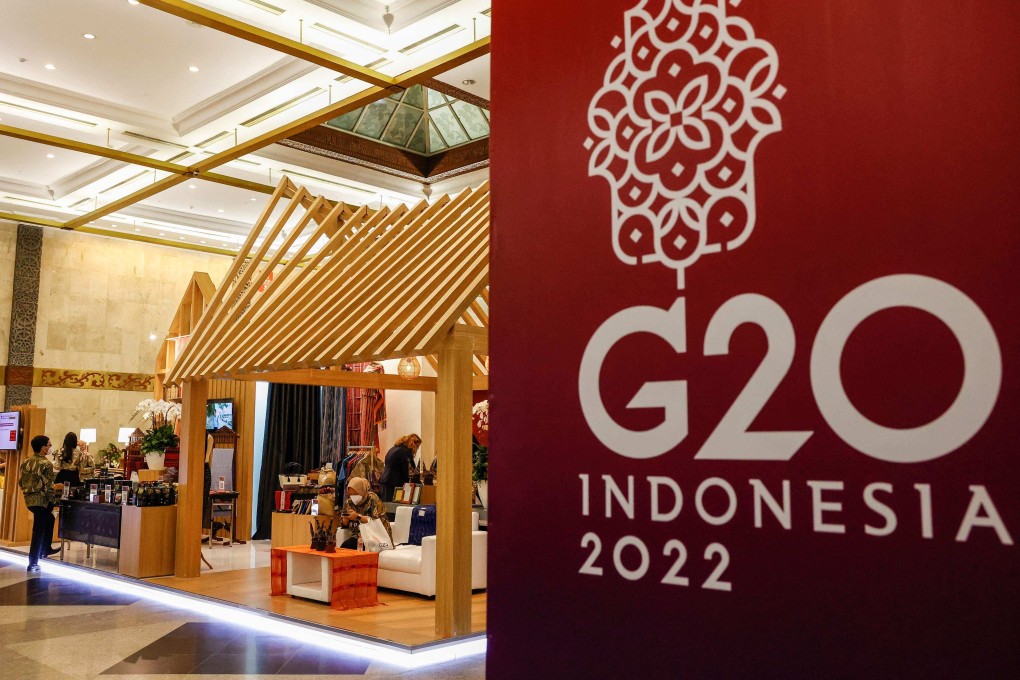Advertisement
Opinion | Indonesia’s leadership of the G20 needs to secure open trade and strengthen WTO to boost recovery from coronavirus crisis and Ukraine conflict
- Russia’s war in Ukraine can be a catalyst for strengthening the World Trade Organization – the scaffolding that holds up the global economy
- The G20 is the only group that can mobilise support from the world’s most powerful economies to reform global institutions such as the WTO
Reading Time:4 minutes
Why you can trust SCMP
1

Russia’s invasion of Ukraine makes the cooperation agenda for pandemic recovery much harder. It has also threatened to derail the G20 summit altogether. Nevertheless, the global community has shown its ability to rapidly coordinate economic sanctions and present a largely united front against a war of aggression. Despite the tragedy from the conflict and its effect on the global economy, this also underlines the security dimension of economic interdependence.
The coordinated economic and financial sanctions on Russia appear to be imposing huge costs on the Russian economy. Whether they help in ending the conflict depends on other factors but the sanctions have made Russia internalise some of the costs of its aggression. Economic sanctions and trade measures can help to constrain bad behaviour and give the global community non-military tools to fight back in the extreme against military aggression. The collective action, however, can only be effective given high degrees of economic interdependence, where countries need each other in sustaining their economic activities. China is more integrated into the global economy and appears to be distancing itself from Russia.
Maintaining the interdependent open economic system is a powerful weapon for securing peace. Crucial to that is an effective multilateral trading system with a stronger World Trade Organization (WTO) at its centre. The crisis in Ukraine can be a catalyst for strengthening the scaffolding that holds the global economy up.

Core of trade
The WTO, at the heart of the global trading system, is in crisis. For two decades it has largely failed to update global trading rules or open new markets. Bilateral free-trade agreements have chipped away at those objectives although more recently the Regional Comprehensive Economic Partnership (RCEP) and the Trans-Pacific Partnership agreement have made progress for its members. Since the end of 2019 the dispute settlement body at the WTO has had no judges thanks to a veto by the United States, so it can no longer enforce the rules to keep markets open. The multilateral trading system can be revived by setting about the reform of the WTO.
Advertisement
Maintaining the interdependent open economic system is also a necessary condition for economic recovery from the coronavirus pandemic. Any recovery will be short lived without open international markets that are essential to a prosperous Asian and world economy. The G20 is the only group that can mobilise support from the world’s most powerful economies to reform global institutions such as the WTO. A stronger trade regime with the WTO at its centre is necessary to support the recovery and face new economic challenges in the post-pandemic era.
Indonesia must find a way to keep the G20 focused on cooperative outcomes and directed towards economic recovery. The challenge is to focus on a small number of strategic outcomes instead of a long and unachievable wish list. Clear progress on WTO reform will be a monumental legacy of Indonesia’s leadership of the G20.
Advertisement
Indonesia has a moral authority that few other countries do to set a clear strategic direction for reforming the WTO. Indonesia stepped forward to articulate a comprehensive plan for WTO Reform at the Osaka G20 Summit in 2019. This initiative was welcomed and attracted support from other G20 countries, leading to the Riyadh Initiative to the Future of the WTO in 2020, but progress has been slow.
Advertisement
Select Voice
Select Speed
1.00x
